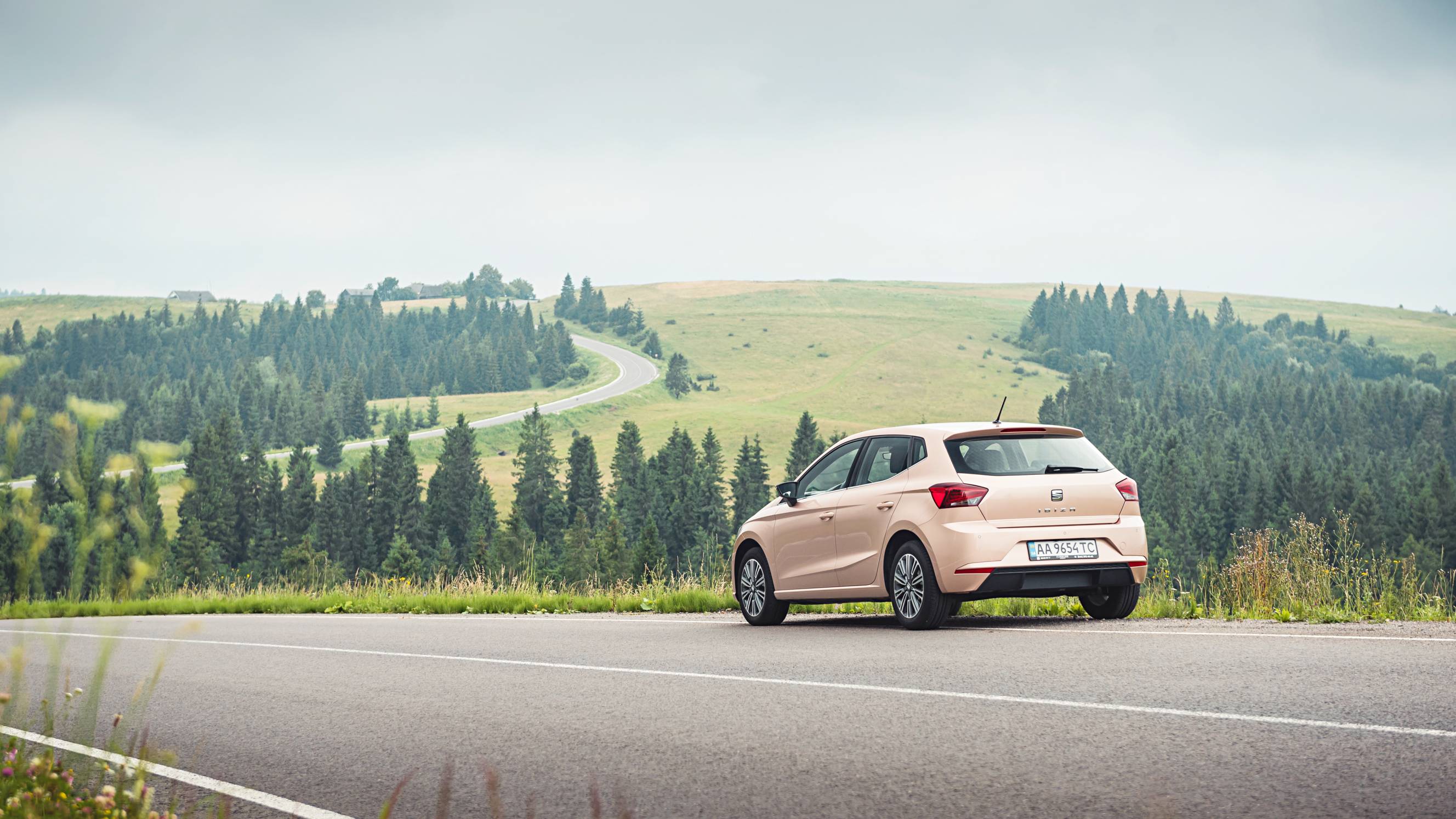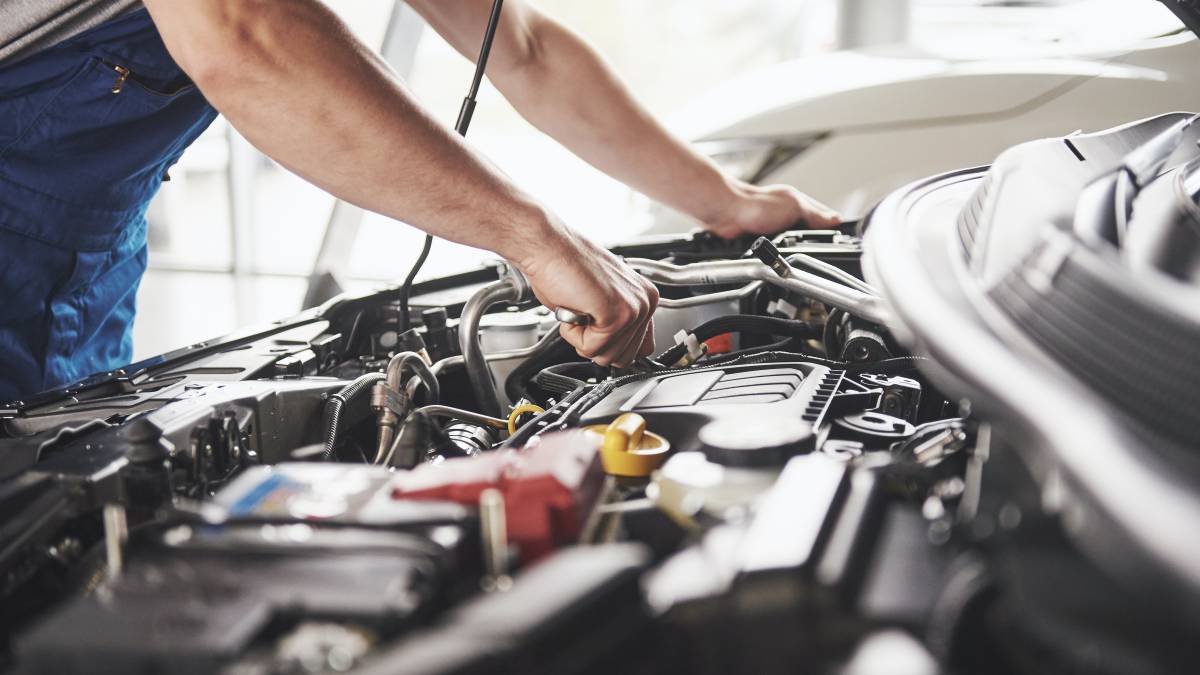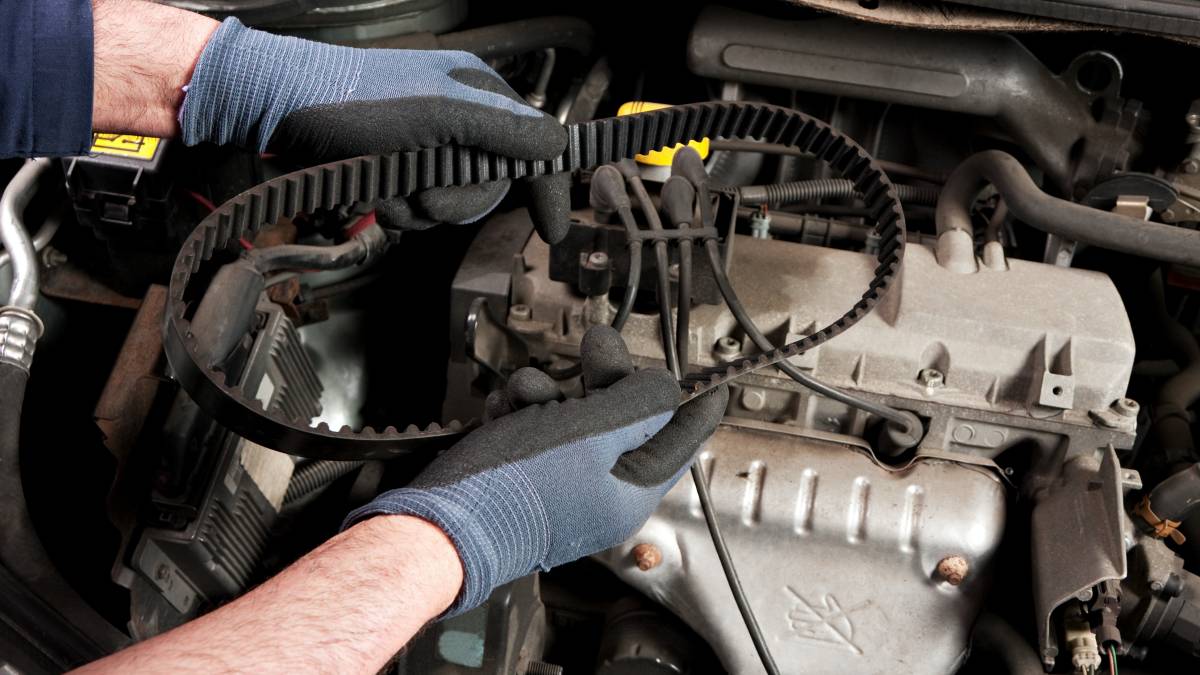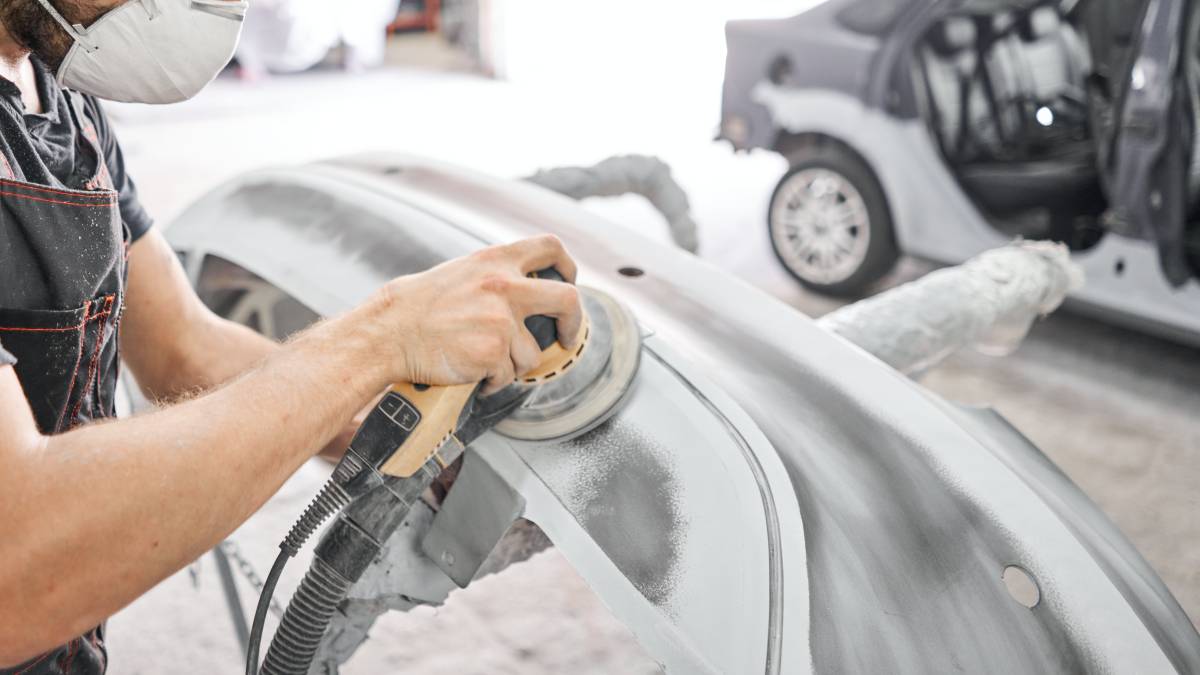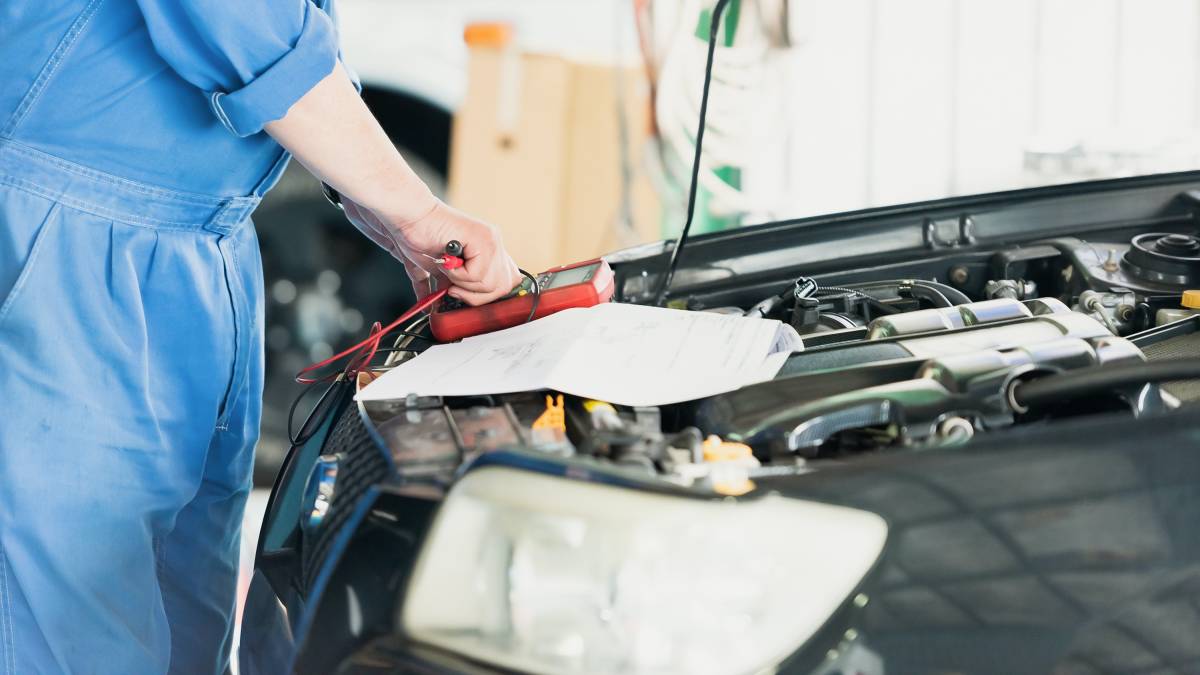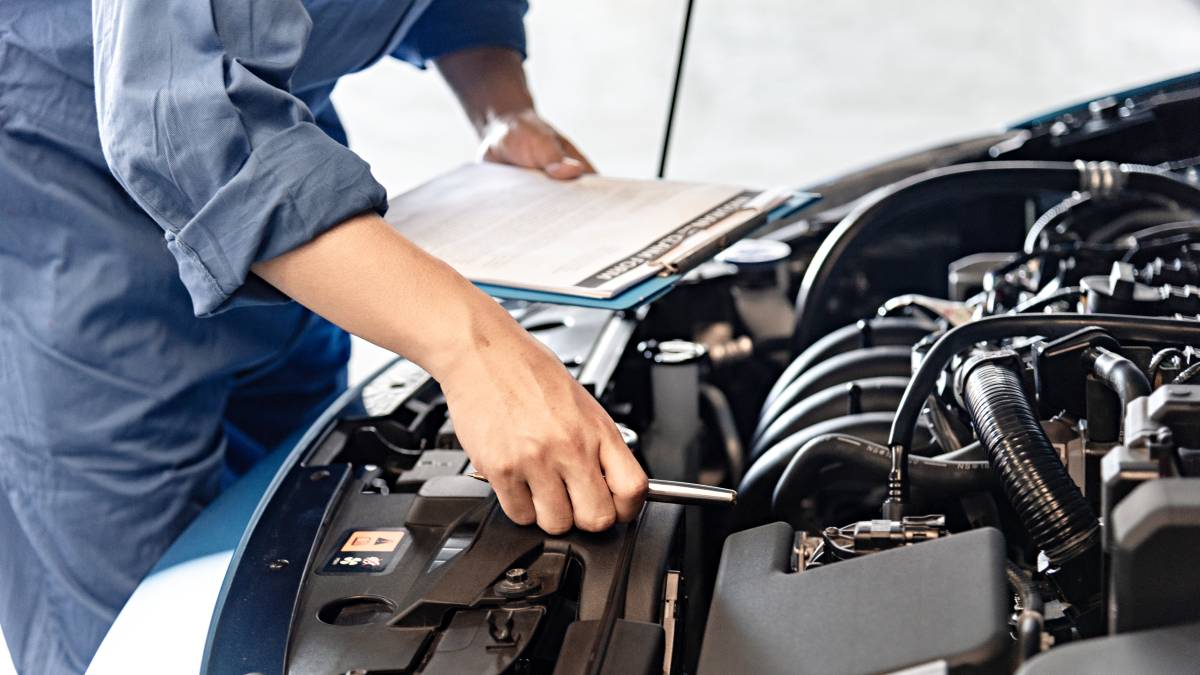- Home/
- Comparisons/
- Car Service/
- Estate vs SUV
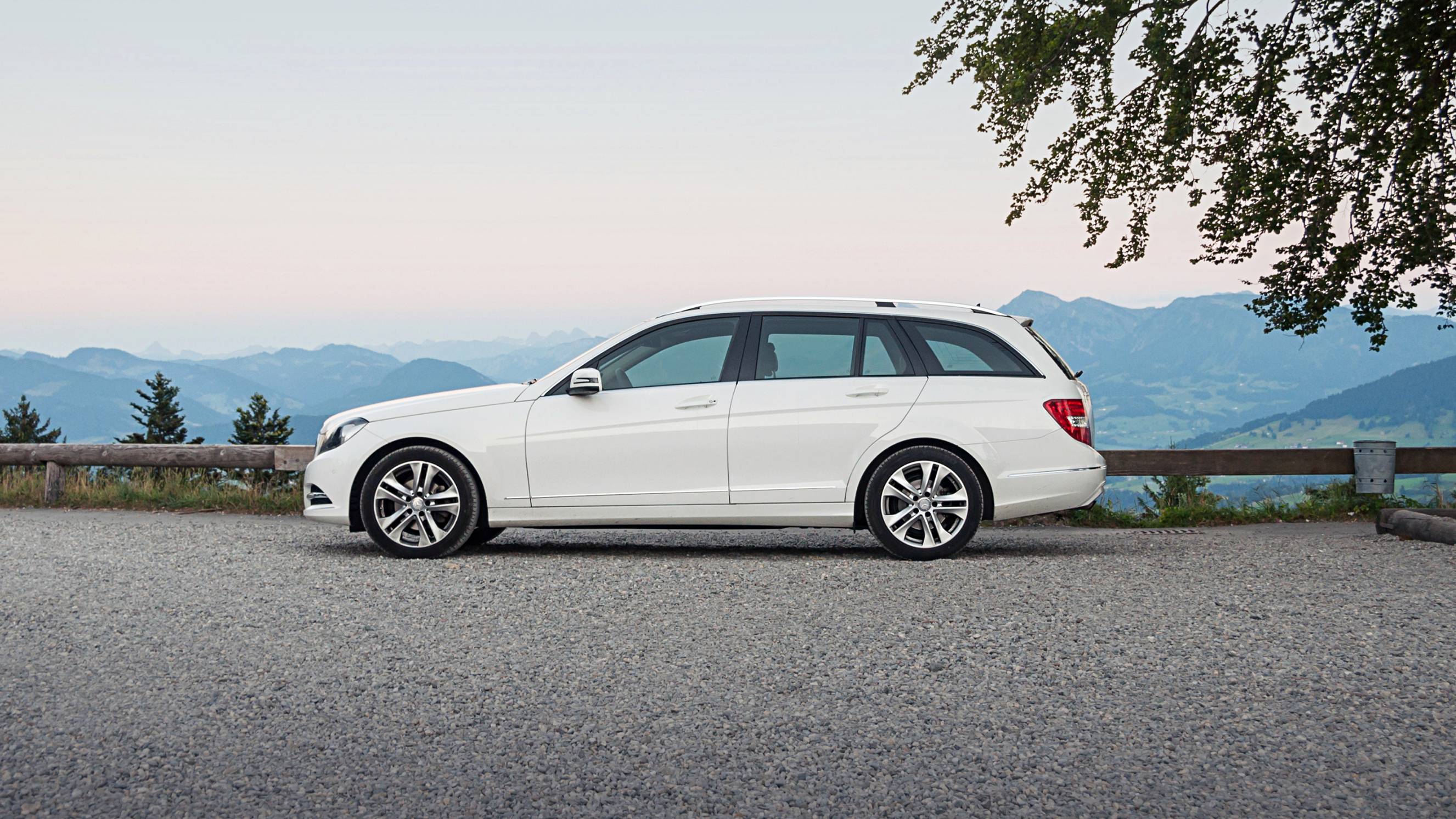
Estate vs SUV: Which should you get?
Comparing estate cars and SUVs based on body style, passenger comfort, and more
Have your car servicedPublished on
Key Facts
- An estate car is a variant of a saloon. It has a low centre of gravity and ground clearance like a regular saloon but has a longer roofline and body that extends rearward. It also has a rear hatch or tailgate that allows access to the cargo area.
- An SUV or sports utility vehicle can handle various driving conditions, from city streets to rough terrain. It combines the features of traditional passenger cars with those of off-road vehicles. It also has a high seating position for great visibility while driving.
If you’re looking for a vehicle with ample interior space, you might be considering estate cars vs SUVs. Choosing a car isn’t rocket science, but there isn’t a one-size-fits-all formula. Because of the intricate differences between an estate car and an SUV, there’s much to consider before making a purchase.
For example, if all you need is a reliable car for your family, estate cars offer ample passenger space, more cargo and boot space, and decent fuel economy. Meanwhile, if you’re into serious off-roading, you may need an SUV with four-wheel drive.
However, if you require excellent family transport but would like to have a bit of fun every other weekend, your options are a high-horse-powered estate or an SUV that is less rugged. Essentially, deciding between an estate vs SUV is often a battle of practicality vs performance.
What is an estate car?
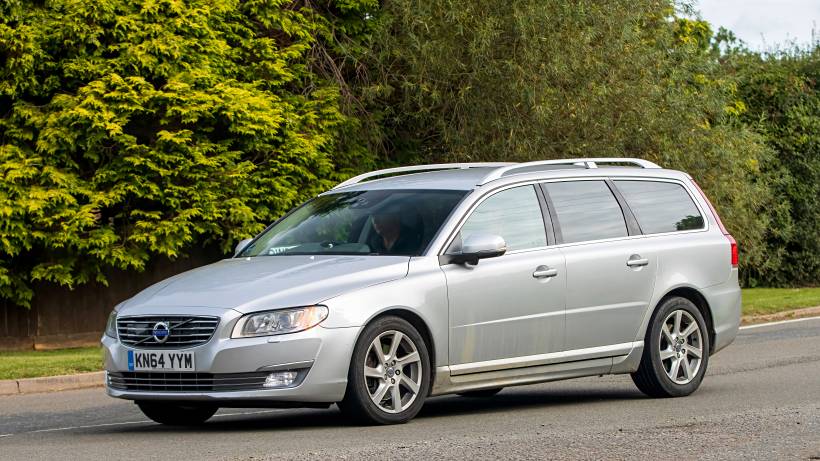 A silver estate car cruising down a country road (Source: iStock)
A silver estate car cruising down a country road (Source: iStock)
An estate car looks like a cross between a hatchback and a saloon. One difference between an estate car and an SUV is that the former has a lower centre of gravity and ground clearance, much like a regular saloon, despite its long body type. It is characterised by a roofline that extends rearward. Instead of a boot, it has a rear cargo area accessible via a hatch or tailgate, similar to a hatchback.
Did you know that the terms for this car body style vary worldwide? In the UK, it’s called an estate car because it was originally used to carry people and luggage between large estates (homes) and train stations. This practical design is known as a wagon in Australia and New Zealand.
In the United States, it’s called a station wagon for the same reason – its usefulness for trips to the train station. No matter the name, this vehicle is one of the most spacious cars on the market.
What is an SUV?
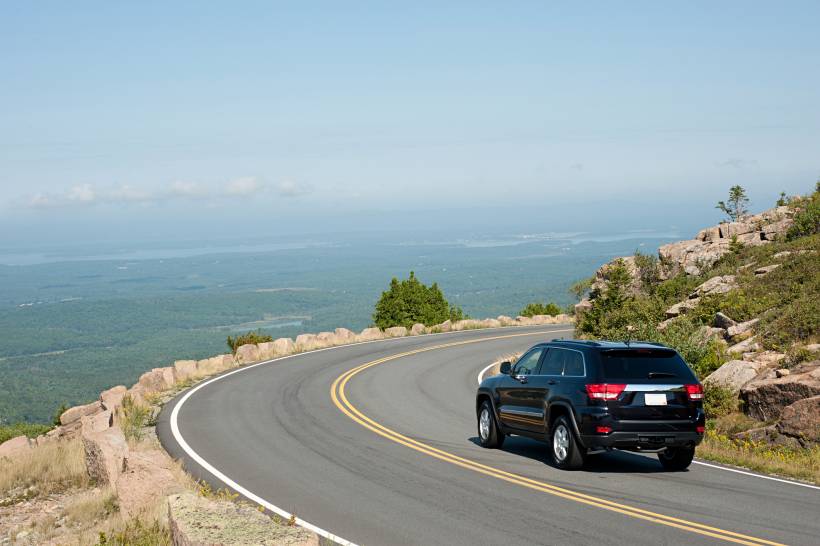 A sleek black SUV navigating a winding mountain road (Source: iStock)
A sleek black SUV navigating a winding mountain road (Source: iStock)
SUVs, short for sport utility vehicles, blend car comfort with off-road capability. They combine the features of a passenger car with higher ground clearance, often offering two- or four-wheel drive for tackling rough terrain. Unlike estate cars, SUVs boast a high seating position, giving drivers a commanding view of the road. This versatility makes them suitable for everything, from city commutes to off-road adventures.
The SUV category is flexible, with sizes ranging from compact to full-sized depending on the region. Compact SUVs are fuel-efficient and manoeuvrable for city driving while maintaining the signature elevated driving position. Mid- and full-size SUVs offer more space, seating, cargo capacity, and towing power for those who need extra muscle.
SUV vs estate: Which is better for your needs?
Most people get the car they want instead of the car they need. That’s alright unless you buy something too far off from what you need for everyday use. If you’re choosing between an estate vs SUV for your family, consider their comfort as well. The best way to go about it is to get a car that’s enjoyable yet practical. Here’s a detailed comparison of SUVs and estate cars to give you some perspective.
In terms of purchase cost
SUVs typically come with a higher price tag than most cars, including modern estates. This is due to several factors: their larger size and construction (often needing bigger engines) and the features that come with that elevated driving position. Also, off-road capabilities like four-wheel drive, advanced traction control, and locking differentials add to the cost.
Estate cars, on the other hand, offer a more budget-friendly option. Their lower profile translates to a lower starting price. Despite this, they excel in practicality, providing families with van-like space and versatility for passengers and cargo.
In terms of body style
SUVs usually have higher ground clearance, and most look huge on the road. Though most modern SUVs are big, sleek machines with a high driving position, some models still have rugged looks that appeal to people who prefer the outdoorsy and adventurous aesthetic.
Estate cars are no slouch, too. These cars have come a long way compared to traditional estate cars that you see in old movies. Much like a standard hatchback or a saloon model, estate cars are sleeker and more streamlined than SUVs.
In terms of passenger comfort
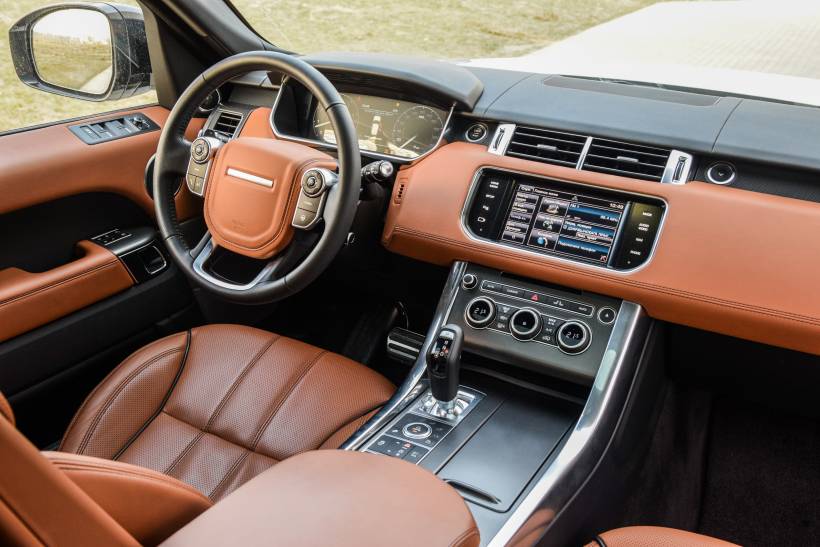 Comfy brown leather seats inside an SUV (Source: iStock)
Comfy brown leather seats inside an SUV (Source: iStock)
SUVs take the crown for vantage point. Their higher seating position grants drivers superior visibility on the road. Passenger space is also generous, although ride comfort can vary depending on the make and model.
Estate cars, on the other hand, prioritise passenger comfort with spacious interiors that can compete with even the largest SUVs. While the lower driving position might take some getting used to for those accustomed to SUVs, estates often deliver a smoother ride thanks to their lower centre of gravity.
In terms of cargo space
Space won’t be a major concern when choosing between an SUV and an estate car. Both offer generous cargo capacity, with the ability to fold down rear seats for even more room. SUVs capitalise on their height for bulky items, while estates excel at carrying long objects thanks to their extended design.
In terms of performance
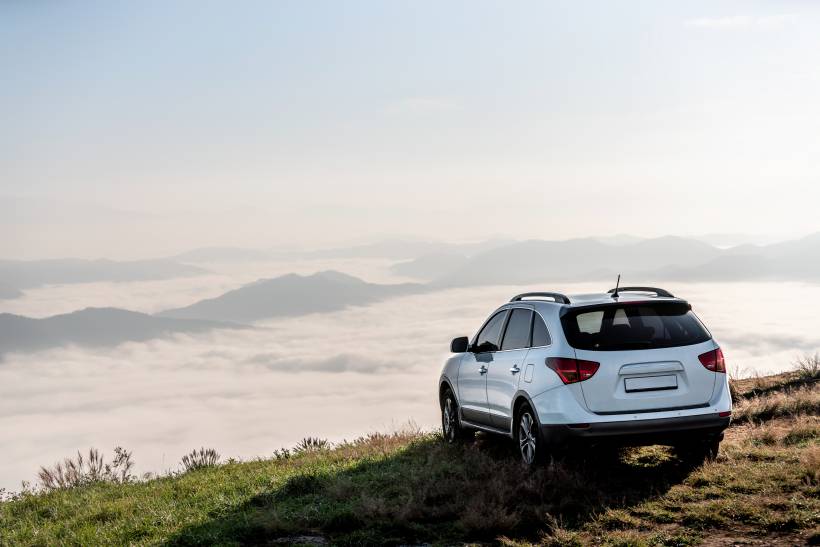 A pristine white SUV traversing a rugged mountain road (Source: iStock)
A pristine white SUV traversing a rugged mountain road (Source: iStock)
SUVs are designed to handle various driving conditions, from city streets to rugged-off road terrain. This means they come with features (e.g., advanced suspensions) that enable them to drive on most roads and even tow other cars. But because of their larger engines and bulkier frames, they consume more fuel than your average car.
While not suited for rough roads, estates offer a pleasant saloon-like driving experience like other family cars. Because of their sleek, elongated body, estates have less air resistance and are more agile on the road. They also have smaller engines, which means they consume less fuel and have lower running costs than most SUVs.
In terms of durability and maintenance
SUVs trade some everyday practicality for off-road prowess. Their robust frames and complex drivetrains, ideal for tackling tough terrain, can translate to higher car servicing costs. Off-road adventures can also lead to pricier repairs due to potential bodywork damage and the extra time mechanics may take to address the specific needs of an SUV.
Estate cars share similarities with sedans, having mechanical systems that most garages can handle easily. Their everyday design and lower ground clearance typically result in less wear and tear over time, reducing overall maintenance needs.
Care for your estate car or SUV with Airtasker
Keeping your estate or SUV in excellent condition is easier with Airtasker. The platform connects you with local professionals who can take on a range of jobs, from routine maintenance and repairs to cosmetic detailing and washing. Simply post a task listing your needs and look forward to a streamlined car care experience.
Estate car vs SUV
| Estate Car | SUV | |
|
Purchase Cost |
Lower |
Higher |
|
Body Style |
Elongated roofline, looks like a combination of a saloon and a hatchback |
High ground clearance, bigger body and frame |
|
Passenger Comfort |
Lower seating position, ample leg and headroom |
High seating position, good head and legroom |
|
Cargo Space |
Extended design for long objects |
Taller roof for bulky items |
|
Performance |
Agile and fuel-efficient |
Powerful and can tow |
|
Durability/Maintenance |
Needs less maintenance |
Sturdier frame, can be high-maintenance |
FAQs on estate cars and SUVs
While both estates and SUVs can be challenging to park in tight spots compared to smaller vehicles, wagons have a slight advantage. Their lower centre of gravity and car-like handling make manoeuvring in cramped spaces easier.
This primarily depends on the market in your area, plus the make and model of your vehicle. Not all estates and SUVs are created equal, as buyers may prefer one manufacturer over another. The car’s current condition is also a factor.
SUVs have a higher risk of rollovers than estates due to their higher centre of gravity and ground clearance. This means sharp turns, uneven surfaces, high speeds, and even wind or bad weather can all increase the chance of a rollover accident.
Find car service, fast
Post a task
Related articles
Related price guides
